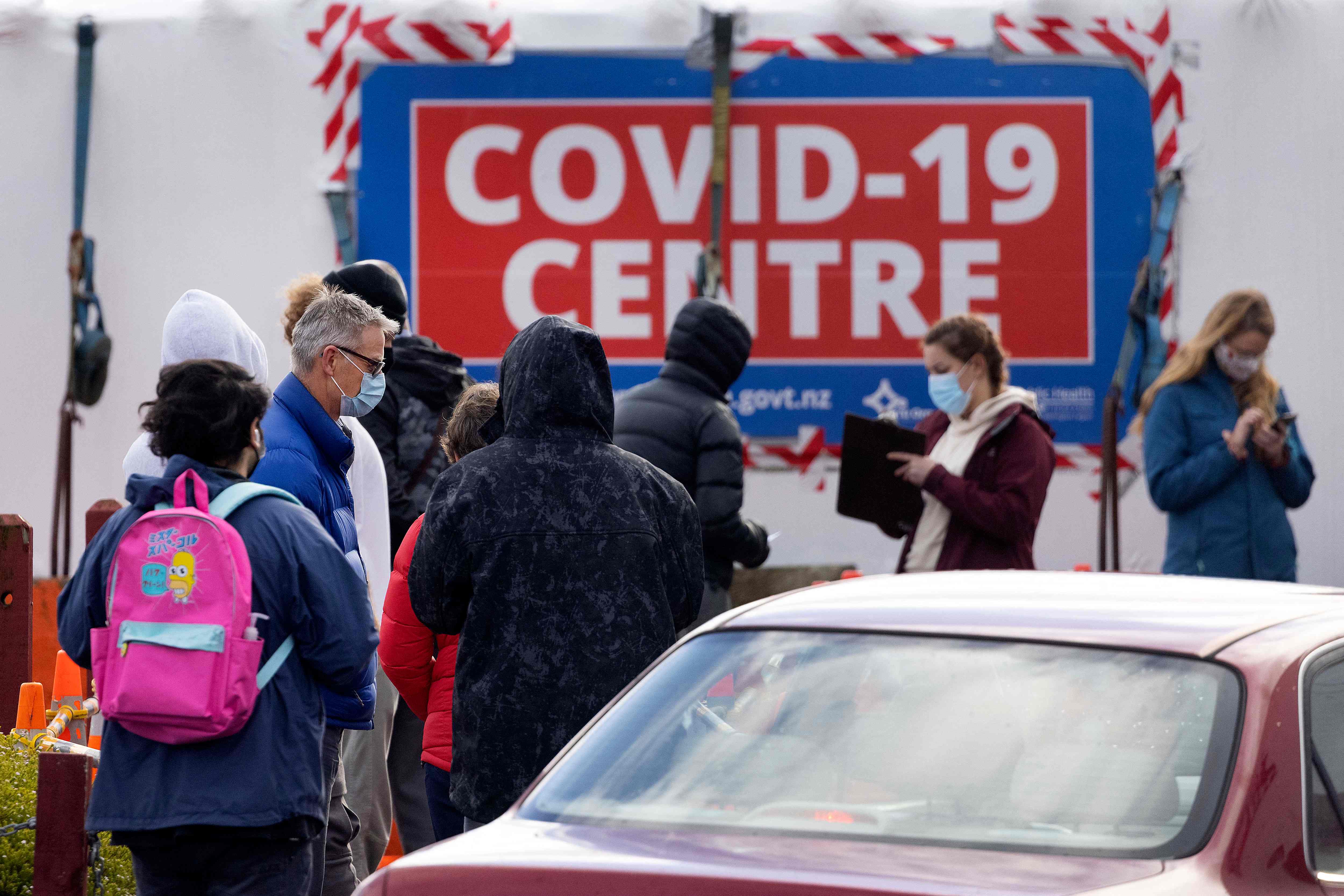New Zealand locks down as number of infections after first Delta Covid case leaps to seven
New Zealand’s six-month run without a locally transmitted Covid infection has come to an end

Your support helps us to tell the story
From reproductive rights to climate change to Big Tech, The Independent is on the ground when the story is developing. Whether it's investigating the financials of Elon Musk's pro-Trump PAC or producing our latest documentary, 'The A Word', which shines a light on the American women fighting for reproductive rights, we know how important it is to parse out the facts from the messaging.
At such a critical moment in US history, we need reporters on the ground. Your donation allows us to keep sending journalists to speak to both sides of the story.
The Independent is trusted by Americans across the entire political spectrum. And unlike many other quality news outlets, we choose not to lock Americans out of our reporting and analysis with paywalls. We believe quality journalism should be available to everyone, paid for by those who can afford it.
Your support makes all the difference.New Zealand has now reported seven cases of the highly transmissible Delta variant of Covid-19 as the detection of a locally transmitted case led the government to call a snap nationwide lockdown – the first in nearly 15 months.
The single case found on Tuesday ended New Zealand’s six-month period without a locally transmitted infection and is thought to be the first time the Delta variant, which originated in India, has reached the country.
Health authorities on Wednesday reported six more cases, prompting a warning from prime minister Jacinda Ardern that the country must brace for the discovery of more cases.
The Delta variant case detected on Tuesday showed a clear genomic link to the outbreak in Australia’s New South Wales (NSW), said Ms Ardern.
NSW on Wednesday recorded 633 new cases of the Delta variant, a 32 per cent increase from two days earlier.
One of the cases in New Zealand is a fully vaccinated nurse from Auckland hospital, the Reuters news agency reported.
“It demonstrates, at this stage, Level 4 (hard lockdown) is the right place to be,” Ms Ardern told the Television New Zealand network.
The national lockdown will last for three days, with Auckland and the nearby Coromandel peninsula set to face restrictions for a week.
“We’re expecting more,” Ms Ardern said, explaining that the authorities have modelling predicting there will be at least 120 cases, despite the restrictions.
Ms Ardern’s decision for a snap lockdown has been met with widespread domestic support, even as it was mocked by some fringe figures abroad, including the former UK politician Nigel Farage. Ms Ardern “has lost her marbles,” he said in a tweet.
New Zealand has largely succeeded in keeping out the pandemic through its tough measures and particularly its strict border controls. Most of the island nation’s citizens have spent the better part of the pandemic leading regular lives, with scenes of packed restaurants and uninterrupted schooling in stark contrast to many worse-affected nations.
Opposition parties in New Zealand, sensing large public support for the lockdown, have also supported Ms Ardern’s decision.
“It is better to act now to stamp out the spread of Covid-19 than to take half measures which do not work and result in it taking longer to shut down the spread,” Judith Collins, the leader of the country’s opposition party, was quoted as saying by The Guardian.
The Reserve Bank of New Zealand (RBNZ) delayed a planned interest rate increase on Wednesday, citing the lockdown. The RBNZ was widely tipped to become the first central bank in the developed world to increase rates during the pandemic, according to the Financial Times.
The rates will instead remain on hold at 0.25 per cent because of the lockdown, the monetary policy committee said on Wednesday.
Join our commenting forum
Join thought-provoking conversations, follow other Independent readers and see their replies
Comments